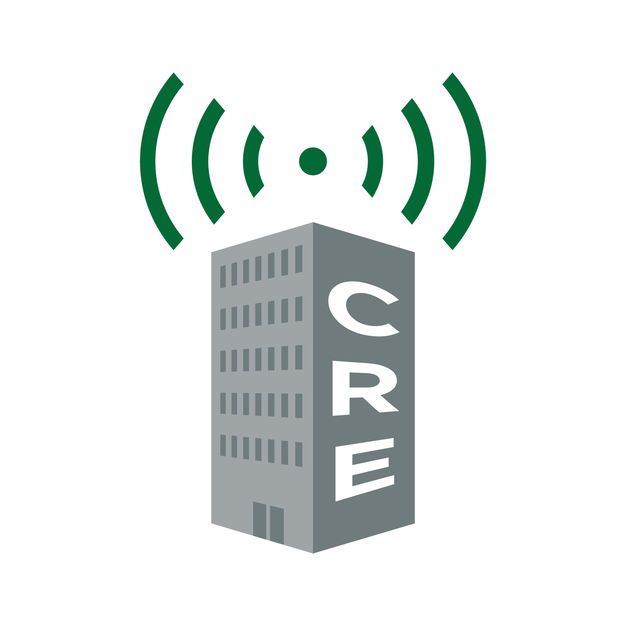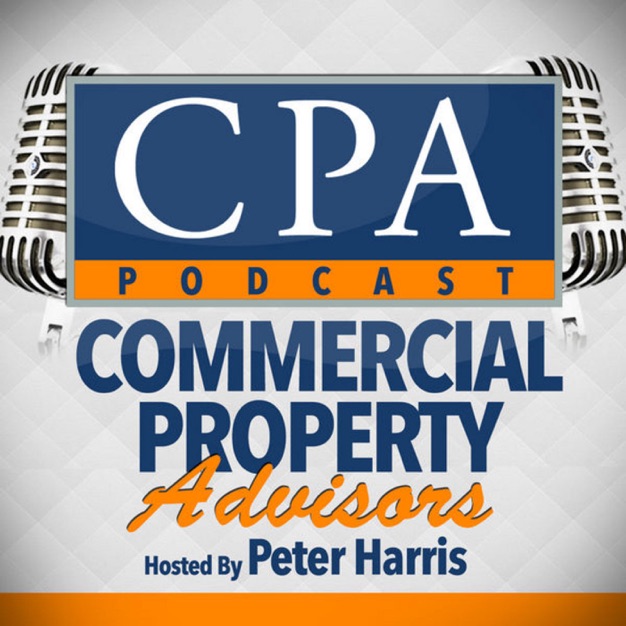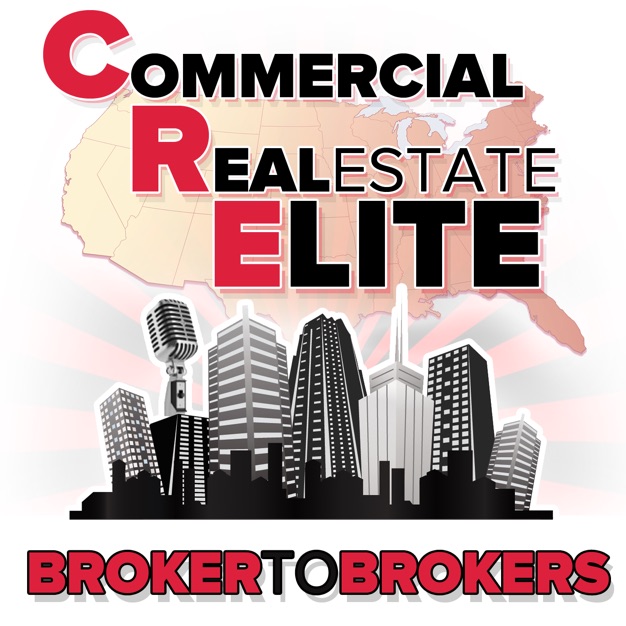
Commercial Real Estate Pro Network
Commercial Real Estate Pro Network
Commercial Real Estate Professionals who work with Investors, Buyers and Sellers of Commercial Real Estate. We discuss today's opportunities, problems & solutions in Commercial Real Estate.
- 58 secondsBIGGEST RISK with Dan Lopez
J Darrin Gross
I'd like to ask you. Dan Lopez, what is the biggest risk?
Dan Lopez
I love that question. Darrin, I think we always go back to the Donald Rumsfeld, the unknown unknowns, and to peel away the unknowns so that you have more insights to make better decisions more rapidly. Give you a a position and essentially the high ground where you can now make decisions with a clear head. I think that is the biggest risk, is shoving our heads in the sand and hoping that it all goes away and it's just not and we have to, especially for risk transfer. How do we get local to state to federal to global markets to understand how to interplay with each other? Because this is not going away.
24 December 2024, 2:00 pm - 38 minutes 17 secondsInvesting in Online Businesses and Digital Assets with Kyle Kuderewski - CRE PN #483
Today, my guest is Kyle Kuderewski. Kyle is the operations manager at Web Street, an investment platform allowing people to passively invest in online businesses and digital assets. Kyle is an engineer turned investor entrepreneur. He's leveraged his attention to detail and knowledge of systems to create a well oiled operation at Web Street as they scale. And in just a minute, we're going to speak with Kyle Kuderewski about investing passively in cash, flowing digital assets.
https://www.linkedin.com/in/kkuderew/
19 December 2024, 10:00 am - 1 minute 41 secondsBIGGEST RISK with Kyle Kuderewski
J Darrin Gross
I'd like to ask you, Kyle Kuderewski, what is the BIGGEST RISK?
Kyle Kuderewski
Yeah, I think this one for me, thinking about the investing risks all the time and whatnot, but I have to zoom out. And I like to go on a personal level, level here, and this is kind of why I got out of more of a corporate role, and what kind of led me down this investing path and this entrepreneurial path. So to me, I think the biggest risk is becoming too focused on immediate tasks and losing sight of long term strategic goals. So it's easy to get caught up in day to day demands and miss those opportunities for innovation, for growth. And what I mean by that is like, what am I doing day in and day out at my previous engineering job is that getting me where I want to be long term with the way my life's built? If I want to be able to work remote, or if I want to spend more time with family, or whatever the case is, I need to craft a life around that. So you talked about mitigating it. This is actually written here on my desk. I I schedule regular big check, check in big picture, like review sessions, where I assess my progress against my goals and identify where I need to adjust. And then the other way I mitigate that is I build accountability by sharing these goals with a colleague or a mentor. Mentors are huge, huge tool I use so that they can provide feedback and tell me, like, Yo, you're getting out of line here. This is not leading you toward the goals you want. You're too focused on the day to day, whatever the case may be. So to me, that's a really big risk, and it can you can lose tons and tons of time, years and years of your life if you're not paying attention to those big picture goals.
https://www.linkedin.com/in/kkuderew/
17 December 2024, 2:00 pm - 31 minutes 45 secondsCreating Vibrant Hubs for Community Connections with Edie Weintraub - CRE PN #482
Today, my guest is Edie Weintraub. Edie Weintraub is the visionary founder of Terra Alma, a boutique real estate advisory dedicated to shaping walkable, community centered spaces and fostering local connections. And in just a minute, we're going to speak with Edie Weintraub about creating vibrant hubs where people gather.
Website: https://www.terraalma.com/
12 December 2024, 10:00 am - 1 minute 25 secondsBIGGEST RISK with Edie Weintraub
J Darrin Gross
I'd like to ask you. Edie Weintraub, what is the BIGGEST RISK?
Edie Weintraub
Yeah,I think for us, you know, we are commercial real estate brokers for real estate agents, and so we are typically paid on commission only. And so if that deal doesn't come to fruition, that lease doesn't get signed, we don't get compensated. And so here, what I have to offer is my my network, my knowledge and my time, and so we are taking a significant risk every day in choosing who are the clients that we opt to work with. Because, you know, we might put a lot of time, energy and effort into deals that might not come to fruition. So it's, it is definitely the roller coaster. It's not a merry go round. And so I know that our field is not necessarily for everyone, but I do think that we're able to mitigate it in regards to balancing out our portfolio with some consulting opportunities where we're educating brands as well as developers on how to go about creating. Spaces that ultimately will attract the right tenants that they want. So we do try to balance that as much as we can, but I think it's important and we share with all of our clients that how we get compensated and why they should opt to work with us, but also realizing that we're investing in our time in them as much as they're investing their time in us.
10 December 2024, 2:00 pm - 36 minutes 6 secondsRaising Private Money with Jay Conner - CRE PN #481
Today, my guest is Jay Connor, the private money authority, and in just a minute, we're going to speak with Jay about raising private money.
5 December 2024, 10:00 am - 2 minutes 59 secondsBIGGEST RISK with Jay Conner
J Darrin Gross
I'd like to ask you, Jay Connor, what is the BIGGEST RISK?
Jay Conner
Well, when you ask that question, Darrin, the first answer that comes to my mind is definitely not a traditional answer. I'm thinking about Charlie Jones. Charlie Jones is known for his quote that says, within the next five years, there's two things that will have the biggest impact on your growth within the next five years. Those are the new people you meet and the new books you read. So my answer to the question, what do I see is the biggest risk? The biggest risk I see is someone being happy with the copasetic and the static and missing out on all the opportunities that this world has to offer and that God has to offer. And how can you learn about these opportunities? Is what Charlie Jones says, The people you meet and the books you read my good friend Tom Crow, who was the founder of wholesaling Inc, which was the largest wholesaling instruction Company in the nation, Tom preaches, read eight pages a day. Just read eight pages a day of a non fiction book, autobiographicals, biographies, self improvement. Do that? Commit to that and join very reputable networking groups or masterminds, people of like minded goals. So the biggest risk that I see Darrin are people missing out on all that there is out there to be offered by staying static and not embracing and being committed to self growth. By the way, just as an aside, success is a lousy teacher. Success is a lousy teacher. It's where we fail. It's where we make mistakes that we actually grow. I was so blessed six weeks ago to meet John Maxwell in person and have a chat with him. He was our keynote speaker, one of the masterminds that I'm a member of and the audience member asked him says, What do you what's the one thing that you attribute your success to? And John Maxwell says, Well, I just fail more than anybody else. He said, You know, our wins are only about 30% of what we try, but if somebody else tries 10 new things, they fail seven times, they win three times. I'm going to try 100 new things, I'll fail 70 times, but I got 30 wins.
3 December 2024, 2:00 pm - 44 minutes 16 secondsFinancial Freedom Debt Repayment Strategies with Mark Willis - CRE PN #480
Today, my guest is Mark Willis. Mark Willis is a certified financial planner and is a man on a mission to help you think differently about your money, your economy and your future. Mark is a three time number one best selling author and the owner of Lake Growth Financial Services, and in just a minute, we're going to speak with Mark Willis about Buying Back Debt.
28 November 2024, 10:00 am - 1 minute 46 secondsBIGGEST RISK with Mark Willis
J Darrin Gross
I'd like to ask you, Mark Willis, what is the BIGGEST RISK?
Mark Willis
Well, I was thinking about this some the biggest risk is, is there's so many layers to your great question, and with enough time and enough adult beverages, you might get even deeper than this. But here's a good start anyway, there's a quote by Terry Smith. He says there are only two types of people when it comes to market timing, people who cannot do it and people who have not yet realized that they cannot do it. So what do I mean by that? What does he mean by that? Well, what I mean by what, I guess I'm taking away from that, is we are our biggest risk, the arrogance that comes with humanity's arrival syndrome. And this is something Nelson Nash came and showed me. He said the biggest threat to human survival is the arrival syndrome, and that is the idea that we have made it, that we have found the pinnacle of existence, that we know it all, that we know what the market is going to do tomorrow, or that we know how to buy our next car that, or we know how to invest In real estate, or we already have figured out that whole life insurance is blank, whatever bias we have right to use today's examples. But this could expand itself to everything. We know what the future government's going to look like, or where taxes are headed, or you know what our kids are going to do when they graduate college. We don't know nothing is, I think, the refrain of avoiding the arrival syndrome. So to me, that is the biggest risk.
26 November 2024, 2:00 pm - 50 minutes 8 secondsReal Estate Investment Goal Setting with Corinn Altomare - CRE PN #479
Today, my guest is Corinn Altomare. Corinn is the co founder of Hearth Fire Holdings, a real estate investment firm dedicated to creating durable wealth through innovation and real estate and technology. And in just a minute, we're going to speak with Corinn Altomare about how to turn your real estate investment goals into reality.
Ph: (818)378-1524
21 November 2024, 10:00 am - 2 minutes 52 secondsBIGGEST RISK with Corinn Alltomare
J Darrin Gross:
If you're willing, I'd like to ask you. Corinn Altomare, What is the BIGGEST RISK?
Corinn Altomare:
for self storage, specifically? And I'll go there. First, something that we keep a very close eye on is over saturation, because it is such a niche market kind of service and real estate and business. So that's something that we head off very early in our underwriting process. We use a number of technology tools that not only track existing inventory in any given market or region, but also what's coming in the pipeline, what kinds of either zoning, zoning applications or new development, new construction permits are out there to make sure that we are not either buying or developing in a market that's already teetering on the brink of over saturation. So that's something very specific to what we do in self storage that we look at that's a primary risk, I would say, just because it's the laws of supply and demand. So that's something that we keep a close eye on throughout the acquisitions and due diligence process. We also verify that when we visit potential new acquisitions in person and tour the market, make sure there's nothing that we missed virtually, that we can then find out while we're there, in person, on the ground, and then on a more macro level, I mean, there's, there's so much in in our world that we can't control, and so that the biggest risk is simply the unknown, unknowns, and I can't solve or protect against those other than, other than building our team and business on the best possible quality and caliber of people that we can at the end of the day, you want to be able to know and trust who's at your side in a storm. And while it's very it's tough to it's really tough to know who it is you're doing business with, and to get to know people and vet them, especially, especially when you're you know, considering investing with somebody right and considering handing over a decent portion of your retirement or your savings. I very much believe that it comes down to people. The wrong people can take the best deal and turn it upside down. The right people contain can take something that's, you know, on paper, pretty modest, but through their commitment, through their integrity, through their work ethic, deliver on what that is supposed to be, what that is supposed to return to our investors. So for me, the end of the day, it's all about the people that you surround yourself with, that you trust, that you invest with.
Ph: (818)378-1524
19 November 2024, 2:00 pm - More Episodes? Get the App
Your feedback is valuable to us. Should you encounter any bugs, glitches, lack of functionality or other problems, please email us on [email protected] or join Moon.FM Telegram Group where you can talk directly to the dev team who are happy to answer any queries.
 Commercial Real Estate Podcast
Commercial Real Estate Podcast
 Duke Long Commercial Real Estate With A Little Attitude Podcast
Duke Long Commercial Real Estate With A Little Attitude Podcast
 Commercial Real Estate Investing for Dummies
Commercial Real Estate Investing for Dummies
 Commercial Real Estate Elite: Broker to Brokers
Commercial Real Estate Elite: Broker to Brokers